Cystatin C ELISAs
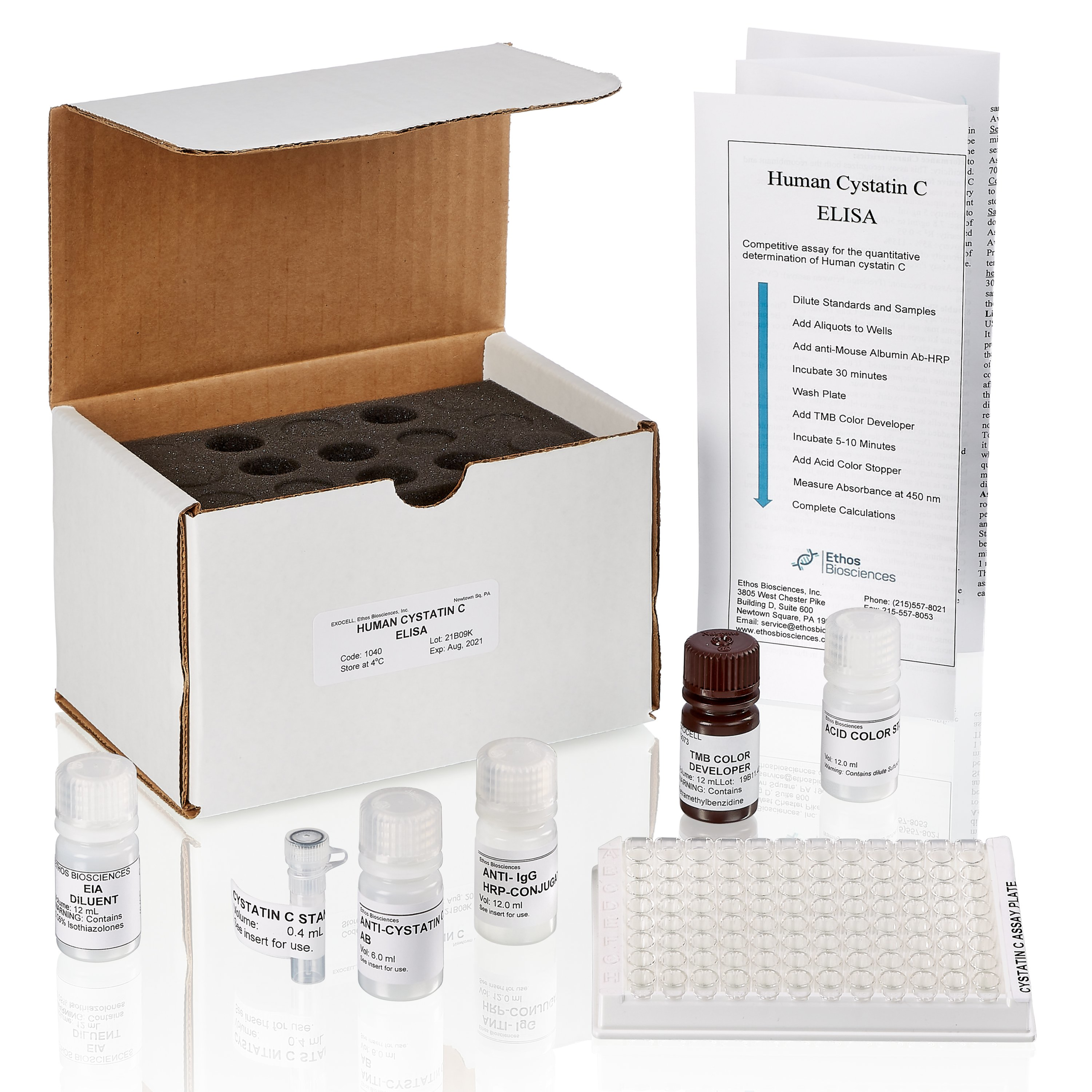
Human Cystatin C ELISA
Product #: 1041
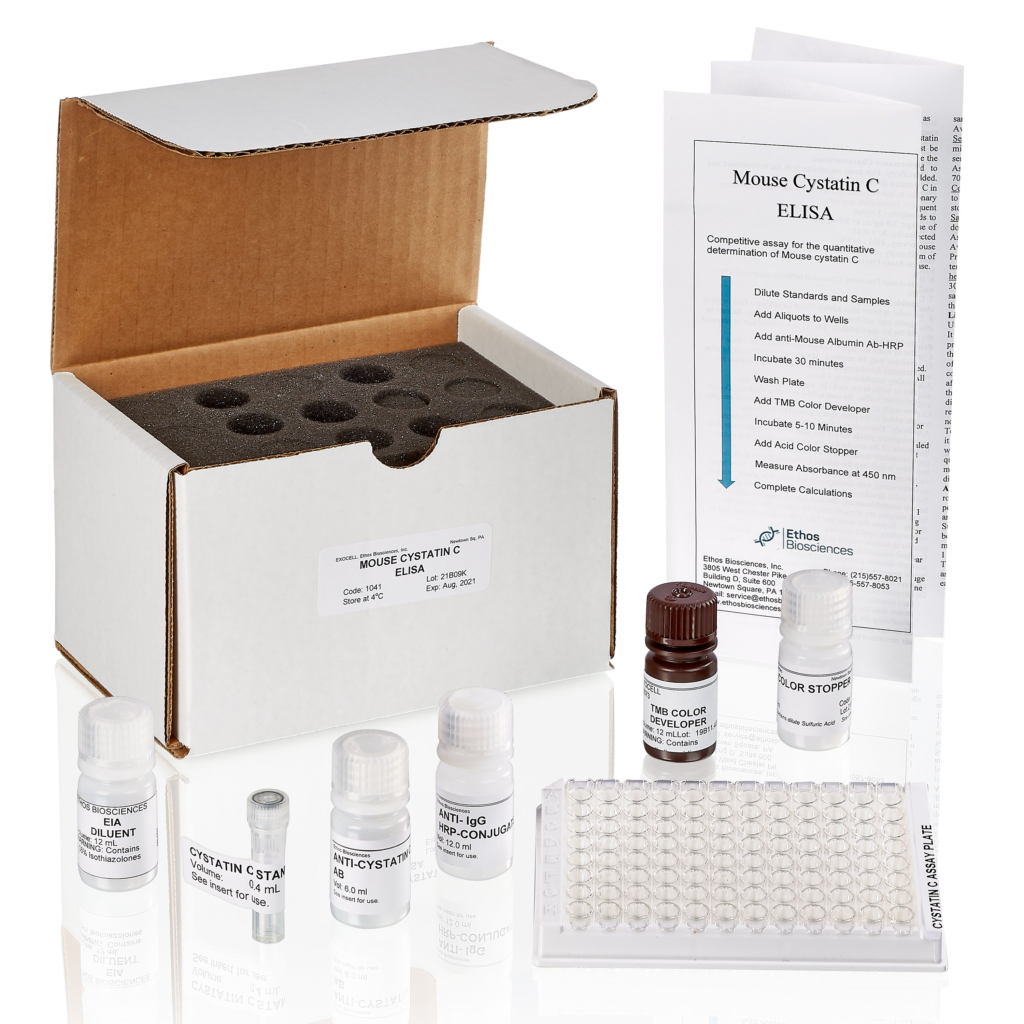
Mouse Cystatin C ELISA
Product #: 1043
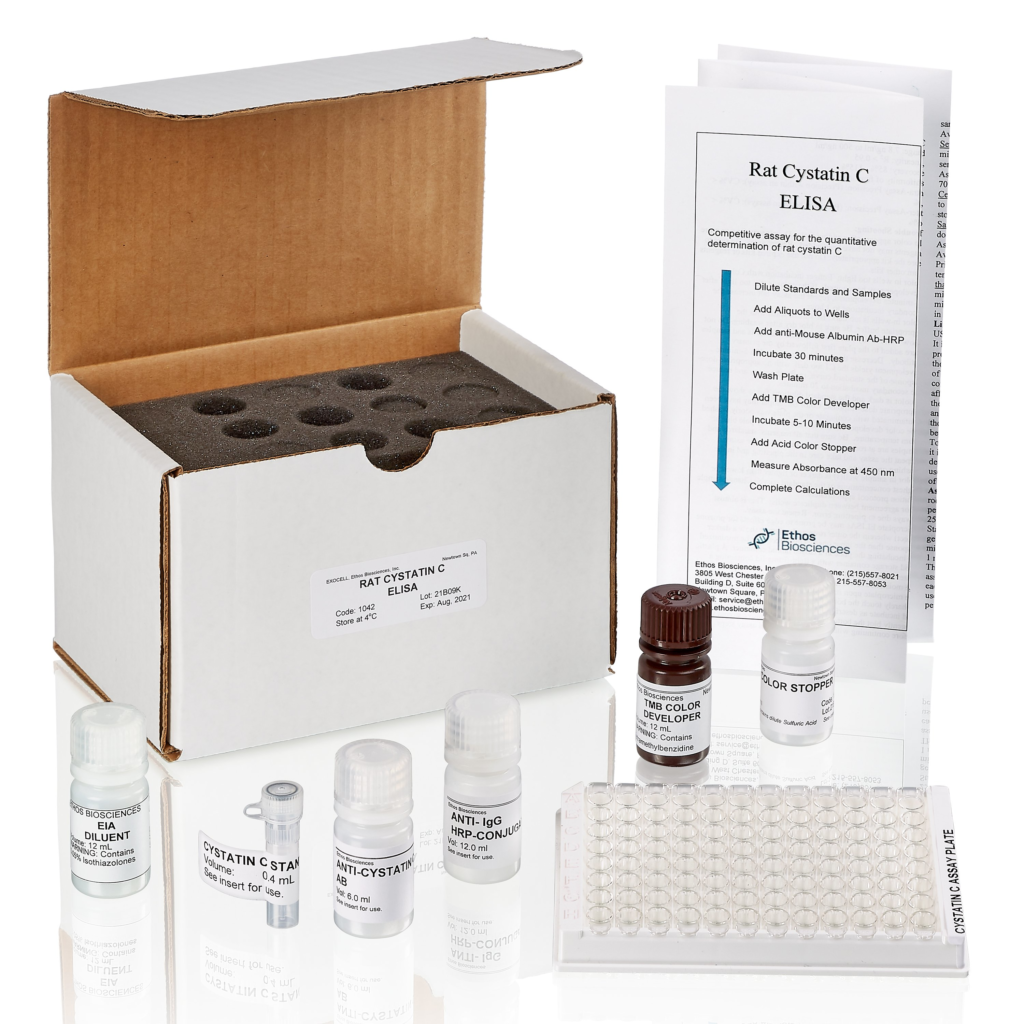
Rat Cystatin C ELISA
Product #: 1042
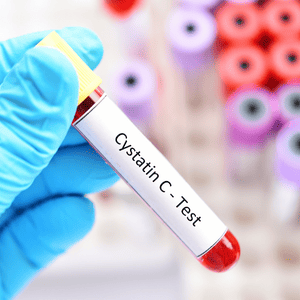
What is Cystatin C?
Cystatin C is a small protein that is produced by cells and filtered by the glomerulus. It is reabsorbed by tubular epithelial cells and catabolized, so it does not return to the bloodstream; making it an excellent marker for GFR.
The Glomerular Filtration Rate shows how well the kidneys are functioning. A raised level of serum or plasma cystatin C correlates closely with the GFR. If your GFR number is low, your kidneys may not be working as well as they should. This may be a sign of kidney disease. In addition, Cystatin C has many benefits over the use of creatinine. It is less affected by factors such as gender, age, muscle mass, and ethnicity. Cystatin C also rises faster than creatinine; and therefore can detect kidney dysfunction earlier.
What is the normal range for Cystatin C?
The normal range for Cystatin C is 0.62-1.13 mg/L (1).
What does Exocell’s Cystatin C ELISAs measure?
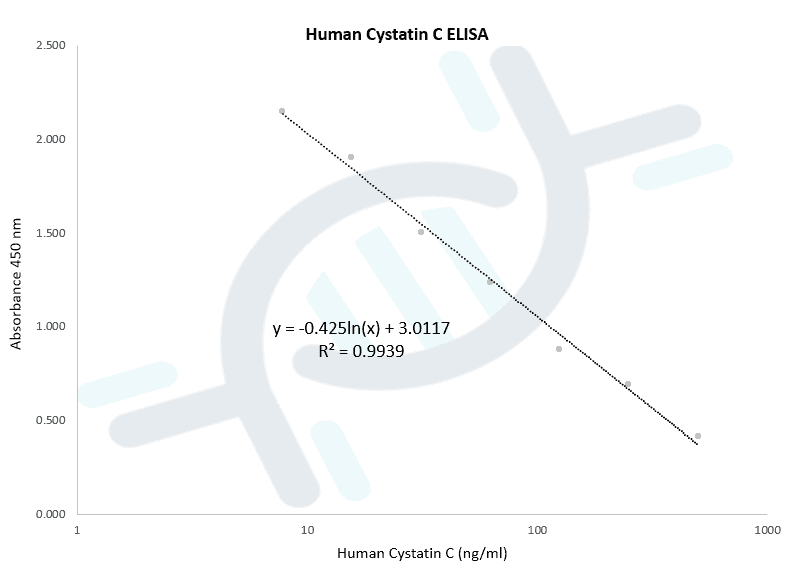
Our collection of Cystatin C ELISAs use recombinant (human, mouse, rat) cystatin C as standard and a polyclonal antibody raised against recombinant cystatin C. This antibody does not react with albumin or IgG either in our ELISA or on Western Blot. Natural cystatin C showed dose-response curves that were parallel to the standard curves obtained using the Ethos Biosciences kit standards, indicating that these kits can be used to determine relative levels of native cystatin C. Each assay is conducted in a direct competitive mode and the results are reported as ng/ml cystatin C.
Each Cystatin C ELISA kit contains 1 x 96-well Cystatin C Assay Plate, 2 x NHE-Casein Diluent,1 x Cystatin C Standard,1 x Anti-Cystatin C Antibody,1 x HRP-Conjugate Antibody,1 x TMB Color Developer, and1 x Acid Color Stopper. Instructions for use are delivered in box and can also be found under the product tab for each kit.
